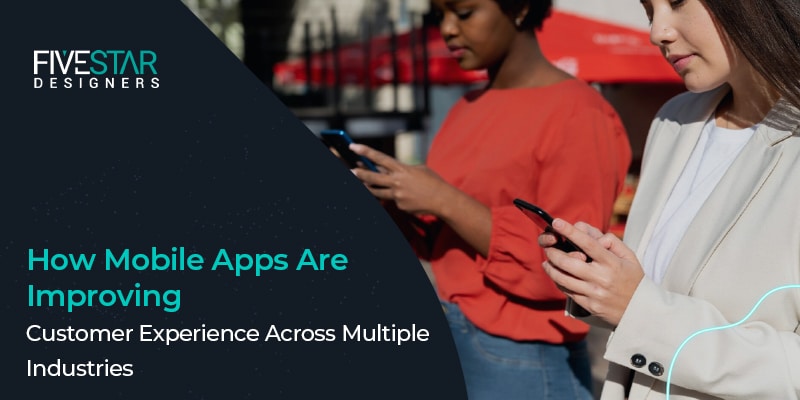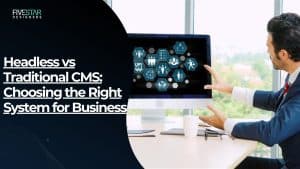Continued rapid advancement in technology in today’s environment means mobile apps are now essential tools for organizations in various sectors to improve customer satisfaction. In one way or another, apps have changed how firms communicate with their customers, whether in making engagements easier to accomplish, delivering customized services, or improving organizational flow.
Currently, billions of mobile device users are using the application as a tool for convenience, efficiency, and creativity. Along with this, businesses in every sector have also found a new way to enhance their connection with users through easy and effective manners.
How Business Apps Are Enhancing The Everyday Lives Of Individuals
Retail Businesses
The use of mobile applications in retail clearly offers customer recommendations, faster checkouts, and offers that are not available elsewhere. App developers use features like real-time inventory updates as well as the use of AR virtual trials to boost customer satisfaction due to improved decision-making.
Even varieties such as Amazon or Sephora have offered ultimatums on how to incorporate all these functionalities, as they extend the online journey into real life and vice versa.
Healthcare Businesses
These increase patient experiences found through healthcare applications as they allow patient appointment bookings, telemedicine, and records. They cut down time to access patient care, make patients get the care they need with ease, and offer essential health information in the palm of the user.
Further, the wearable device integrations by app development agencies provide the ability for the patient to observe the state of their health in real-time, which enhances practical usage.
Hospitality Businesses
Developers in the UK develop hotel applications that add value to guests through online appointments, portable check-ins, and further suggestions. Smart devices help them manage their schedules, receive virtual keys to rooms and even being able to plan for room services in a very convenient way.
Marriott Bonvoy and Airbnb are prime examples of applications that do an amazing job of handling these interactions for users with relevant content recommendations for stays based on user choices.
Transportation Services
People who go to business or work use these apps since they provide real-time information on transportation, booking services, and flexible payment methods. Greater utility coupled with real-time information improves travel experiences, which sustains consumer relationships.
On-demand apps for transportation such as Uber and Lyft allow users to select destinations, see drivers’ information, and monitor, live, their trips.
Education Platforms
Education mobile applications have transformed conventional learning in many ways making learning more fun and unique for learners of all ages. Badges, quizzes, and leaderboards create more user engagement and extend the time users spend on the app.
Sites like Duolingo and Coursera continue to offer interesting lessons and also teach educational skills to a lot of people by addressing different learning requirements.
Fitness and Wellness
Health and fitness mobile app development allows users to monitor their exercises, plan their routines, and lead healthful lives. They also feature exercises, customized workout, and nutrition plans, guided meditation, and social tools that can motivate the users.
These are fitness apps such as Fitbit, which provide information about movement during the day, calorie counters such as MyFitnessPal, and knowledge of sleeping patterns.
What Are The Benefits Of Improved Customer Experience On Businesses
- User Retention: Applications that intrinsically as well as extrinsically are user-friendly and have added-value attributes ensure customer loyalty, lowering churn rates.
- High Revenue: Richer experiences translate into more consumption of products, services, and subscriptions, directly impacting top and bottom-line results.
- Brand Loyalty: A positive app experience ensures customers are loyal to your firm’s brands, thus boosting the brand’s reputation and engagement.
- Valuable Insights: Apps gather useful user information that can be studied to enhance preferences and products to provide an even better experience by being evidence-based.
- Competitive Edge: Corporations with better application experiences stand out in the relevant market by attracting more customer attention with a competitive edge.
- Smooth Operations: Mobile apps share data with in-house systems, increasing day-to-day operations, adapting processes, decreasing expenses, and increasing productivity.
- Wider Reach: Mobile apps also enable businesses to reach customers at different geographical locations in a seamless manner as barriers to business expansion are removed.
Conclusion
The convenience of service delivery has improved greatly through the use of mobile applications across all business sectors. As companies realize the importance of customization and new distinctive features of mobile applications, apps could be used as a tool for enhancing engagement and customer loyalty and creating sustained revenue.



